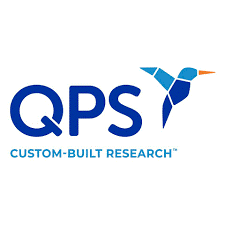Panel discussion: new modalities within bioanalysis
Although seemingly new techniques, cell and gene therapies have been around for decades but are now becoming prevalent modalities competing with traditional methods. Our experts provide their thoughts on these new modalities, discuss the challenges associated with their implementation and review the investment into training and technologies needed to support further progression.
This webinar will cover new modalities, including gene and CAR-T cell therapy and their implementation into the bioanalytical field.
What will you learn?
- Learn about how new modalities are being implemented into spaces that are set up for traditional methods.
- Understand the need for re-training and investment into new technologies to support cell and gene therapy development.
- Review the benefits and drawbacks of new modalities compared with traditional techniques including the use of monoclonal antibodies, antibody-drug conjugates, etc.
Who may this interest?
- Laboratory managers
- Contract research organisations
- Bioanalytical scientists
- Individuals in the cell and gene therapy space
Speakers

Dr Vibha Jawa
Executive Director
Bristol Myers Squibb (NY, USA)
Dr Vibha Jawa is an Executive Director for biotherapeutics bioanalysis in the Nonclinical Disposition and Bioanalysis organization at Bristol Myers Squibb (BMS). Vibha is responsible for leading biotherapeutic and cell/gene therapy bioanalytical function supporting DMPK and immunogenicity and provides strategic and scientific oversight for the BMS developmental portfolio. Vibha worked at Merck (NJ, USA) for four years, where she led the Predictive and Clinical Immunogenicity group and at Amgen (CA, USA) for 14 years, supporting discovery to development for biotherapeutics.
Vibha has 20+ years of experience in diverse fields of biologics, vaccine development and gene therapy, with successful support of 20+ IND, BLA and MAA filings. Vibha is a recognized leader in bioanalysis and immunogenicity, with 75+ peer-reviewed publications and serves as a Reviewer and Editor for The AAPS Journal and J. Pharm Sci.

Dr Amanda Hays
Scientific Officer, Senior Director
BioAgilytix (NC, USA)
Dr Hays offers more than a decade of lab experience in multiple fields, including pharmacology, drug metabolism, immunoassays, immunogenicity, biomarkers, flow cytometry and qPCR. She has particular expertise leading programs through all stages in the drug development process.
In her current role, Amanda serves as a Scientific Officer and provides global scientific leadership and technical guidance at BioAgilytix (NC, USA). Dr Hays is the Chair of the AAPS biomarkers and precision medicine community and the AAPS qPCR working group, among other volunteer leadership positions. She earned her PhD in pharmacology from the University of Kansas Medical Center (KS, USA).

Dr Zamas Lam
SVP and Global Head of Bioanalytical & Preclinical Development for QPS
QPS (DE, USA)
Zamas is the Senior Vice President of Preclinical Development at QPS (DE, USA) and trained in mass spectrometry, carbohydrates and glycoproteins. Zamas is one of the world’s few high-resolution mass spectrometrists by training and by trade, with a passion for biologics mass spectrometry and gene therapy. Since graduate school, he keeps thinking that it will be fun to work on a gene level in drug discovery and development versus at the protein level or at the metabolite level!

Dr Eric Thomas,
Global Director of Method Development & Validation,
Labcorp Drug Development (IN, USA)
Dr Eric Thomas is the Global Director of Method Development and Validation for LC-MS-based bioanalysis for Labcorp Drug Development. Eric joined Labcorp more than ten years ago and has served as the lead for bioanalysis in Indianapolis for the past eight years. Attending the University of Michigan (MI, USA), Eric conducted his PhD in medicinal chemistry and performed his postdoctoral work with Neil Kelleher at the University of Illinois (IL, USA), focusing on proteomic analysis of histone modifications in cell culture and tissue samples.
Eric continues to have a strong interest in biomarkers, being involved in the proposal that led to the creation of the Labcorp Biomarker Solution Center and is engaged in establishing the strategy for future biomarker support within bioanalysis. He is also focused on expanding capabilities for analysis of large molecules via LC-MS through evaluation of new platforms and workflows. He has delivered more than 20 publications and presentations and remains active in forums such as AAPS, WRIB, GCC and EBF.
This panel has been recorded on Thursday 26 January 2023.
In association with



